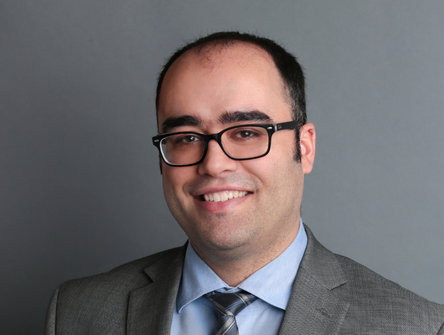Attempt to amend ‘lost Canadians’ bill fuelled by anti-immigration sentiment
Bill passed by House narrowly avoided being watered down

While the federal government may have “its heart in the right place” with legislation to restore the citizenship of “lost Canadians,” lawyers say it’s still missing the mark by failing to create one set of simple rules for everyone to follow.
“Lost Canadians” are mostly second-generation Canadians born abroad to Canadian parents who were also born in another country. They lost — or never acquired — their citizenship, in some cases as a result of changes to the Citizenship Act by the Harper government, in others due to older circumstances, which meant people born abroad could not pass down their Canadian citizenship unless their child was born here. The legislative amendments by the Harper government came amidst complaints of “citizens of convenience” following the evacuation of Canadian citizens from Lebanon in 2006.
"Lost Canadians" have been fighting for years to regain it. A 2023 decision by the Ontario Superior Court found the Conservative legislation unconstitutional and ordered changes to provide a pathway to citizenship to right the situation.
The federal government is on its third extension from the Court to make the necessary changes.
Bill C-3 would amend the Citizenship Act to allow a Canadian parent born abroad who has a substantial connection to this country to pass on citizenship to a child born abroad beyond the first generation. It would also provide them with access to the direct grant of citizenship for a child adopted abroad beyond the first generation.
It’s a second legislative attempt, as a previous bill, C-71, died on the order paper when the election was called earlier this year.
The latest effort was recently passed by the House of Commons after significant amendments at committee by the Conservatives and Bloc Québécois. Those proposed require individuals between 18 and 55 to have “adequate” knowledge of English or French, as well as their responsibilities as citizens, and a police check. The parties also sought to amend the calculation of how long parents had been in the country before giving birth abroad.
It was only thanks to the NDP that those amendments were stripped from the bill at report stage, and the original version was passed.
Citizenship not about tests
Immigration lawyers say the amendments would have conflated the concepts of citizenship with naturalization.
“It misses the point that citizenship isn’t supposed to be about tests, such as having to pass security screenings,” says Gabriela Ramo, a partner with EY Law LLP in Toronto and past chair of the CBA’s immigration section.
“You are Canadian by virtue of your birth to a Canadian parent. The original legislation requires that the parent maintain their ties to Canada. These amendments imposed requirements on the child once they turn 18.”
Amandeep Hayer, an immigration lawyer in Langley, B.C., says the Conservatives have tried to limit birthright citizenship before, but it’s not compatible with Canada’s constitutional framework.
“In other countries it can work, but there you have one order of government responsible for registration of birth and citizenship, which is not the case in Canada.”
The bill’s original text, which has now passed and moved on to the Senate, had been deemed largely inoffensive by lawyers, as it strikes the right balance. However, it does come up short by failing to legislate the equal treatment of adopted children because it specifies that the applicability relates to the time of adoption rather than when the adopted child was born.
During the study of the previous version of this bill, the Senate was clear that this was an issue that needed to be dealt with. Hayer says it's worth slowing down the current iteration to address this, given how significant an issue it is.
“If we don’t deal with the adoption issue, we’re going to be back here in a couple of years to deal with this exact same bill and exact same set of issues all over again," he says.
What’s needed is one simple set of rules for everyone to follow because a "weird, hybrid approach” isn't going to fly.
Ramo distinctly remembers testifying before Parliament about this issue in 2002, when other changes to the Citizenship Act were proposed, and says “we still haven’t gotten this right.”
Prior to those changes in 2002, children born abroad to a Canadian citizen automatically became Canadian citizens. However, those adopted abroad were first granted Canadian permanent residence and then had to be naturalized once in Canada.
Ramo says C-3 has the potential to again create differences between children born abroad to Canadians and those born abroad, adopted by Canadians, and raised in Canada.
“This is not the first time that adopted children have been treated differently than the biological children of Canadians,” she says.
“When drafting legislation, the drafters often fail to recognize the different impact that the provisions have on those families created via adoption.”
Ramo adds: ”(Adopted children) should have the exact same rights, full stop.”
Growing anti-immigration sentiment
University of Ottawa law professor Jamie Chai Yun Liew says the government appears to have its heart in the right place with this legislation. It aims to address the problem while also mitigating public concerns about foreigners, given the shifting sentiments toward immigration.
“The foreign figure has begun to invade this analysis more than it ever has,” she observes.
It was the current sentiment around immigration that led to the amendments at committee imposing conditions on "lost Canadians” regaining their citizenship.
Liew, who authored the book Ghost Citizens: Decolonial Apparitions of Stateless, Foreign, and Wayward Figures in Law, says the amendments would have introduced elements not seen previously in Canadian law.
“It also serves to reassure the public that we’re getting a certain kind of member, or that we’re going to keep out certain kinds of people, and it reinforces the colonial ideas around who has always been given easier access to different kinds of status.”
Globally, she says there’s a trend of trying to push those who fall through the cracks toward naturalization, and not without recognizing that people might have the traditional links, ties, or connections expected of citizens.
"It’s a troubling trend, and it means that citizenship is becoming more precarious for a greater number of people.”
Ramo also worries about the growing anti-immigration sentiment, which sees people coming to this country scapegoated for other problems in the current economic climate.
“I do think that certain players within the political world are riding that wave,” she says, adding the now removed amendments were “part of that same tide.”


